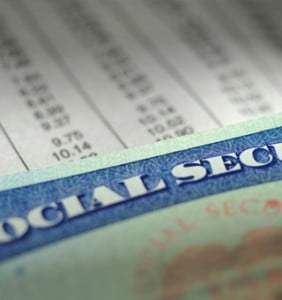What is Social Security?
Social Security was established in 1935 to alleviate poverty among the elderly during the Great Depression. It was created as a self-financing program that would collect payroll taxes from workers which would immediately be paid out in benefits to retirees. Social Security provides critical support for middle-class retirees. Without it, many people who worked their entire lives would struggle to pay their bills. Social Security helps people of all ages. This includes 2.5 million children whose parents have died or retired, 4.1 million spouses of deceased workers, and almost 11 million disabled workers and their dependents. Without the guarantee of Social Security, the poverty rate for older Americans would skyrocket – from 9.5% to more than 42%.
What are the benefits of Social Security?
- A predetermined amount of income : By the time you come to the end of a long working career, the amount of Social Security income you will be entitled to is well established; the benefit is based on your earnings history. While the amount may vary depending on when you apply for benefits, the relative accuracy of the estimate makes it easy to make your retirement income planning.
- Benefits are modest : Overall, Social Security Retirement Benefits average less than $16,000 a year. About half the beneficiaries, mainly women, get less. These modest benefits are most or all the income for more than 1 in 4 older women.
- Steady income : Once you have qualified for Social Security Benefits, the amount of income you’ll receive is set. Some people worry that benefits may be cut in the future, but it is highly unlikely that benefits paid to current retirees will be significantly affected by proposals to reform the Social Security system.
- Lifetime income : Social Security is one of the few sources of income that can be assured of never running out.
- Inflation-adjusted income : Social Security benefits are usually increased each year based on the previous year’s increase in the Consumer Price Index. These cost-of-living adjustments (COLAs) help retirees keep up with the rising cost of living.
- Survivor benefits : Although Social Security checks stop at death, benefits are paid to surviving spouses and dependents.
How do you become eligible for Social Security Retirement Benefits?
You become eligible for Social Security by working in a Social Security-covered job for at least 10 years. To be more precise, you need 40 credits. You can earn up to four credits in a year by earning a certain minimum dollar amount. If you earn four credits each year for 10 years, you accumulate the 40 credits necessary to be fully insured and achieve basic eligibility. The following websites have Social Security benefit calculators and you can use them to estimate your benefit:
www.socialsecurity.gov/estimator
www.aarp.org/socialsecuritybenefits
When can you begin receiving Social Security Retirement Benefits?
Full retirement age for people born between 1943 and 1954 is 66. If you are born after 1954, your full retirement age is 66 and XX months (i.e. it’s 66 and 8 months for people born in 1958), and it’s age 67 for people born 1960 or later. This is the age at which you may begin receiving your full, unreduced benefit. Early eligibility begins at age 62. If you apply at this age, your benefit will be reduced. If you delay the onset of benefits past the full retirement age, you will earn delayed credits. For each year you delay the start of benefits, your benefit will increase by 8% per year up to age 70, after which no further credits may be earned. The age at which you apply for Social Security benefits has a tremendous impact on your monthly income and the total amount of benefits you stand to receive over you lifetime. This is one of the most crucial aspects of Social Security planning.
How to apply for Social Security Retirement Benefits:
There are three ways to apply for Social Security:
- Online at www.socialsecurity.gov – for retirement, disability, and spousal benefits only (not survivor benefits)
- By phone at 800-772-1213 (TTY 800-325-0778)
- In person at a local Social Security office. Use the Social Security office locator at www.ssa.gov for the address, hours, and driving directions.
